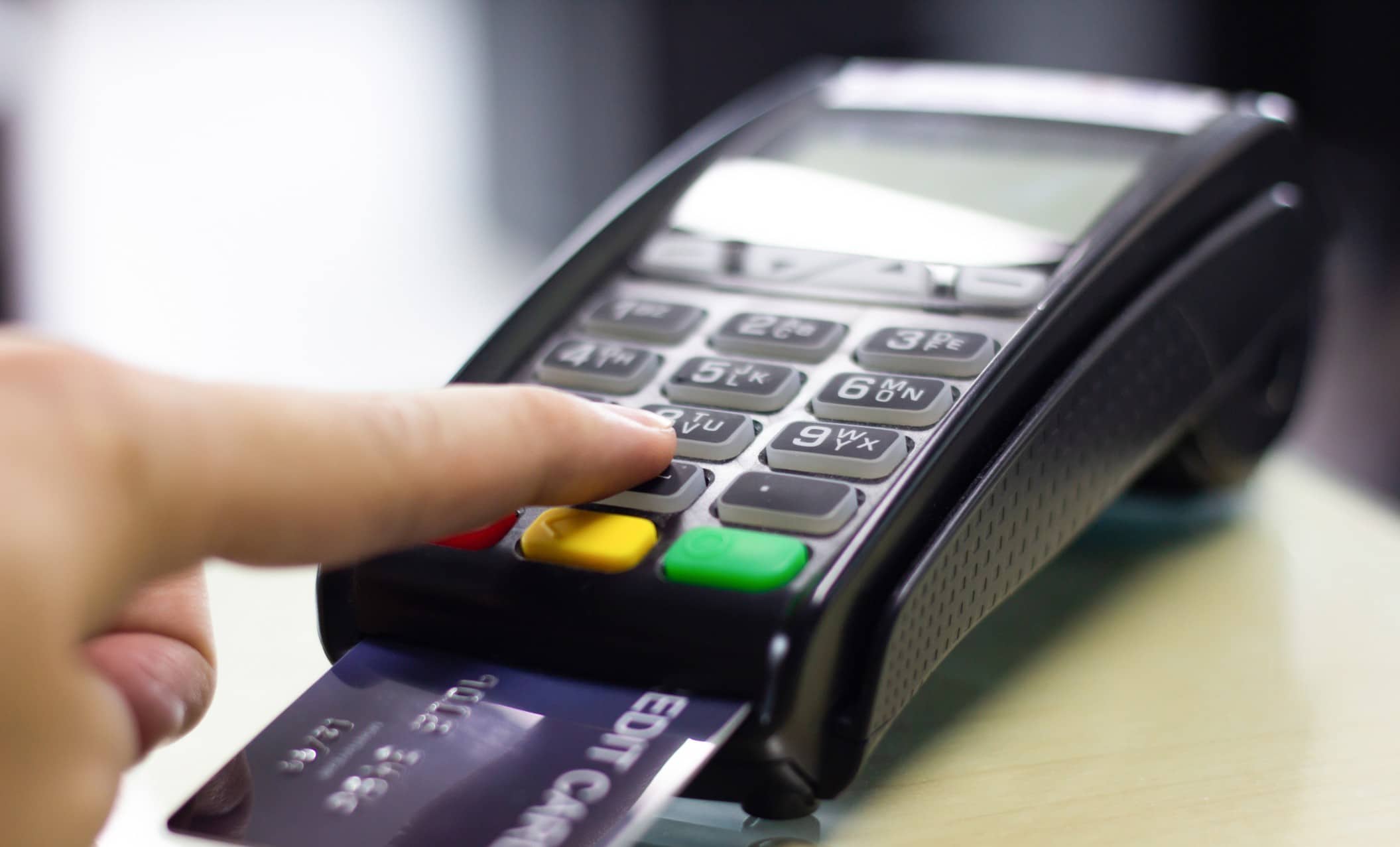Credit card fees are often an enigma to many business owners. It can seem quite complicated to sift through your processing statement and make sense of the weaved fees in and out of your bill. But, although they can seem complex, figuring out how much you are paying is quite simple.
Let’s take a look at the inner workings of your processing bill and discuss things in a way that will help you avoid feeling lost and confused by how credit card fees work.
Types of Credit Card Processing Fees (Wholesale and Markup)
When it comes to merchant account fees, there are two types of credit card processing fees. There are Wholesale Fees and Markup Fees. The difference between the two has to do with being negotiable and non-negotiable.
Wholesale Fees
Wholesale fees are non-negotiable and determined by the credit card issuing bank—they are the pre-determined fees that they charge for making the transaction possible.
Markup Fees
Markup fees, however, are negotiable and should reflect a fair price. These fees can vary from processor to processor and should be taken into account when looking for a new merchant service provider.
Pricing Options
There are three ways in which credit card processors can charge the wholesale and markup fees. They can use the Interchange, Tiered, or Subscription models. Each one has its pros and cons and should be clearly understood by you, the prospective merchant.
Interchange Pricing
Interchange Pricing is the most transparent pricing model, but also the most complicated. Basically, Interchange Plus is a combination of both the wholesale (by issuing bank) and markup (by processor) fees.
Tiered Pricing
Tiered Pricing is a bundled or tiered pricing structure, which a majority of businesses use. Tiered pricing categorizes credit card transactions in the three different categories. With the tiered model, you have qualified, mid-qualified, and non-qualified transactions.
Qualified transaction (also referred to as the Swiped Rate)
In general terms, this is the rate charged per transaction when the card is physically swiped through a credit card terminal.
These types of transactions assume the lowest risk for the merchant provider and the issuing bank. The credit/debit card is present at the time of the transaction, the terminal reads the card’s full magnetic stripe, and a signature is obtained from the cardholder by a representative at the time of the transaction.
These transactions generally involve a personal credit card and not a business or other variety of cards.
Mid-qualified transactions
This is the rate charged when a transaction is manually keyed in using AVS – Address Verification Service (card #, expiration date, address, zip code, and CVV code all match). This means an employee or owner takes down the information relative to the card, but the card owner is not present or does not swipe and sign the transaction.
These types of transactions are deemed “Mid-Qualified Transactions” when one or more of the “Qualified” conditions were not met.
Non-qualified transactions
This type of transaction rate is charged when manually keying in a transaction without using the Address Verification Service. Non-Qualified Transactions are when one or more of the “Qualified” conditions are not met, or:
- When the transaction is electronically deposited (batch transmitted) greater than 1 day from the authorization date, or:
- When the card used for the transaction was of a business or commercial nature and used without submitting the additional data.
Subscription or Membership Pricing
This is similar to interchange pricing, where the transaction cost is separate from the markup charge, but in this case, the markup charge does not have a percentage fee. Rather, with subscription or membership pricing, there is a fixed transaction fee.
For businesses with large transactions can save money while being able to see the breakdown between wholesale and markup charges.
Various Basic Fees Explained
Every merchant service provider will have fees similar to the list below. Some providers will wave select fees, and some will even negotiate the percentages or rates of select fees. We recommend that you look closely at Finical’s rates because you will find no better rates anywhere.
Interchange Fees: Interchange fees are a wholesale fee and the largest portion of fees paid amongst all the different fees. Interchange fees are what the credit card issuing bank charges for each transaction. Interchange fees are a percentage of each transaction along with a far per transaction fee. There is also an assessment fee, depending upon a percentage of overall transaction volume for any given month.
Flat Fees: Flat fees are all markup fees. These fees can typically be negotiated. The name and type of fees vary from processor to processor, but they are very similar in value and applicability. Flat Fees can include terminal fees, charged when a credit card is swiped in a credit card terminal.
Payment Gateway Fees: Gateway fees are similar to terminal feels, but are only associated with Internet-based payments.
PCI Fees: PCI fees are paid to the Payment Card Industry for compliance or non-compliance with the PCI standards. PCI fees are like insurance payments for the merchant account providers to cover costs associated with non-compliant businesses.
Annual Fees: Annual fees are exactly the way they sound and are charged on an annual basis to cover the cost of the provider’s services. Some providers wave the annual fee.
Early Termination Fees: Early termination fees are charged if a merchant service contract is canceled early. Many merchant service providers do not have contracts with early termination fees attached.
Monthly Fees: Monthly fees are charged on a monthly basis and cover the cost of basic merchant account services.
Minimum Fees: Minimum fees are charged when the business owner fails to reach a certain transaction total for the month or year.
Statement Fees: Statement fees are charges related to printing and mailing credit card statements each month.
Most credit card processing companies list their costs on their application form, but it is always good to go over these fees in depth to confirm. Depending upon the type of business you are running and the amount/type of processing you will be doing, your cost and fees can vary. We recommend that you choose a company like Finical that offers transparency with all their fees and offer the best rates in the industry.
About Finical
We don’t just process credit cards, we help drive business. For years, Finical has been helping entrepreneurs and small business owners upgrade their processing platforms to keep pace with today’s evolving marketplace.
Trusted by over 100,000 satisfied merchants, Finical makes the process of opening a merchant account easy and affordable. Our merchant services allow small business owners the ability to accept all major credit, debit, and EBT cards online, offline through NFC readers.
More importantly, Finical specializes in helping merchants become PCI and EMV compliant, thus protecting themselves and their clients from credit card fraud and liability.
If you are a small business owner and are not PCI or EMV compliant, call today and receive a free credit card reader. We guarantee to beat your current rates or will send you a check for $500.
Compare our low rates and processing fees – you won’t find better rates or services anywhere. Call (888) 707-7258 or click here to apply!


